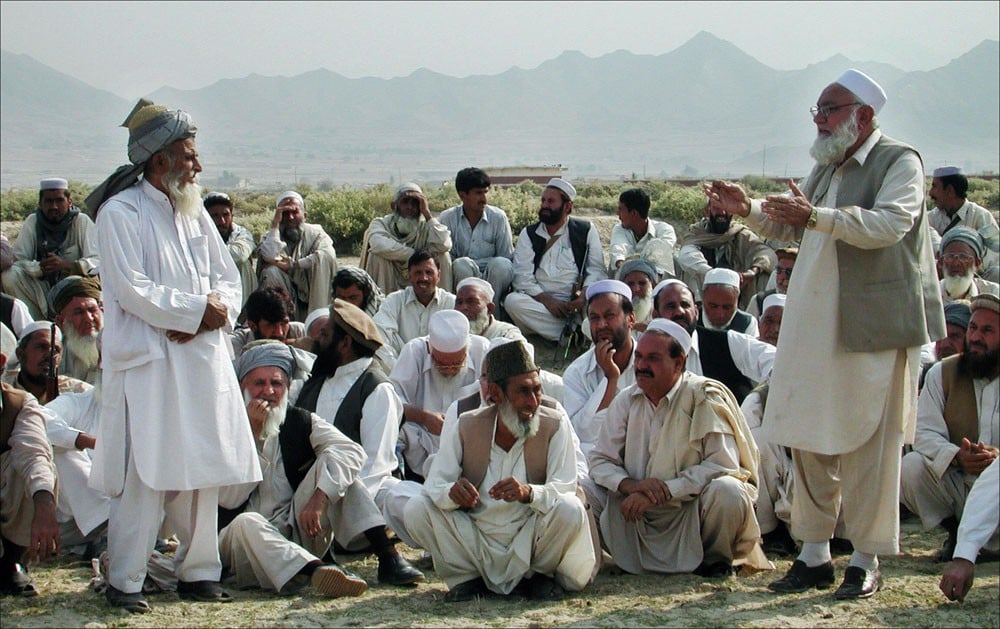
Overhauling of FATA’s administration is the key to long term peace on the frontier

The realisation of reforms relating to FATA administration has come at a high price for the country. Under the principle of "better late than never," it is appreciated, however. This article identifies the existence of informal state -- state sanctioned weak state condition as enshrined by FCR -- as the main reason for the rise of Taliban in FATA. Thus, it recommends the complete repeal of the FCR on the one hand and the mainstreaming of the tribal areas on the other.
Although it is not the first time that state functionaries have called for initiating reforms in FATA, the latest call came in May 2014, when Governor Khyber Pakhtunkhwa Sardar Mehtab Khan notified the setting up of a five-member recommendatory FATA Reforms Commission (FRC) with a mandate to revisit the state/citizen relations in the tribal areas and come up with key reform areas within a 10-month period.
As expected, the suggestions of the commission aptly demonstrated our inability to think out of the box: still another commission to be formed to look into the question of constitutional reform and an increase in the members of the Frontier Tribunal from three to four councils set up in the seven tribal agencies and associated frontier regions, etc.
Long before the US led invasion of Afghanistan, which flushed Taliban and people of their ilk out of Afghanistan to end up in FATA, the borderland had remained the epicentre of occasional militant episodes against the British and before and after them. The reason was never that people of FATA had an intrinsic appetite for violence. Rather -- if to begin with the British arrival to the hinterland -- the state sanctioned weak state condition, manifested through the draconian colonial vestige of Frontier Crimes Regulation (FCR), remains responsible for the perennial existence of violence on the borderland. Loose administration is intimately linked with tremendous upheavals elsewhere as well.
While identifying reasons for the successful launching of social revolutions in the three bureaucratic societies, ranging from France to China to Russia, American sociologist and political scientist Theda Skocpal figured out what exactly led to the outbreak. She believed that external pressure from the more developed states set in motion internal crises in the three case studies. The failure on the part of ruling elites to reform the system from above, primarily because of the resistance from the privileged strata to rationalise taxation triggered the collapse or incapacitation of central administration followed by widespread peasant rebellions and the emergence of marginal elite political movements. Skocpal’s analysis has great relevance for Pakistan post 9/11.
The relocation of Taliban to FATA after the US’s led invasion of Taliban ruled Afghanistan -- external pressure -- necessitated the reform of administrative setup in the hinterland. It not only required to prevent the militant yahoos from entering into the tribal areas -- unrealistic though given the porous nature of Durand line -- in the first place but also strengthening the state capacity to ensure at least the fleeing militants’ compliance to state laws.
The Musharraf government’s failure to rid FATA of its weak statehood paved the way for the rise of militant outfits to wreak havoc. FATA’s administration with its ill-trained and ill-equipped levies was no match for the well-equipped and battle hardened hordes of Taliban. The result was the incapacitation of the colonial recipe -- traditional system of governance -- to give results in a non-traditional arena. No surprise then that Taliban overran levies stations with the officialdom left as mere spectator. Skocpal’s insightful analysis that "not oppression but [authority] weakness, breeds revolution" is what aptly depicts the genesis of Taliban conflagration in the tribal areas.
The whole discussion begs the most important question of what exactly the state should have done to avert Taliban violence in FATA? The simple answer is that what it should do now to prevent the revival of Taliban is what it should have done immediately post 9/11. Informed by strong state presence, overhauling of FATA’s administration is the key to long term peace on the frontier.
Frontier Crimes Regulation is at the heart of weak state condition in FATA. It envisages ceding of a huge room to non-state actors such as tribal norms, jirga (tribal council) and lashkars (tribal forces). Put differently, FCR weakens the state authority on counts of legislation, execution and judicial arbitration.
Repealing FCR and its substitution with the extension of the country’s constitution and laws to the tribal areas will remedy the hinterland of its weak state condition. Practically, this would mean amending Article 247 of the constitution and bringing FATA under the jurisdiction of parliament than the president in the first place. Second, the state court system should be extended to FATA. Third, the de jure (legal) status of jirga should be abolished. Fourth, either the ill-trained levies force should be completely abolished with the existing corps merged with FC or alternatively better trained and well equipped. In the former case, the FC should operate under the civilian administration than the army in FATA.
For sure, giving a concrete form to the above recommendations warrants integrating FATA with the rest of country either by making it a new province or merging it with Khyber Pakhtunkhwa.
Conventional solutions have not paid off in FATA; they will not in the future either. But the million dollar question is, are the wielders of authority set to think out of the box this time? If the past is any guide, then the answer is in the negative. But if rationality is something endearing to those at the helm of affairs, then there is a reason for optimism.